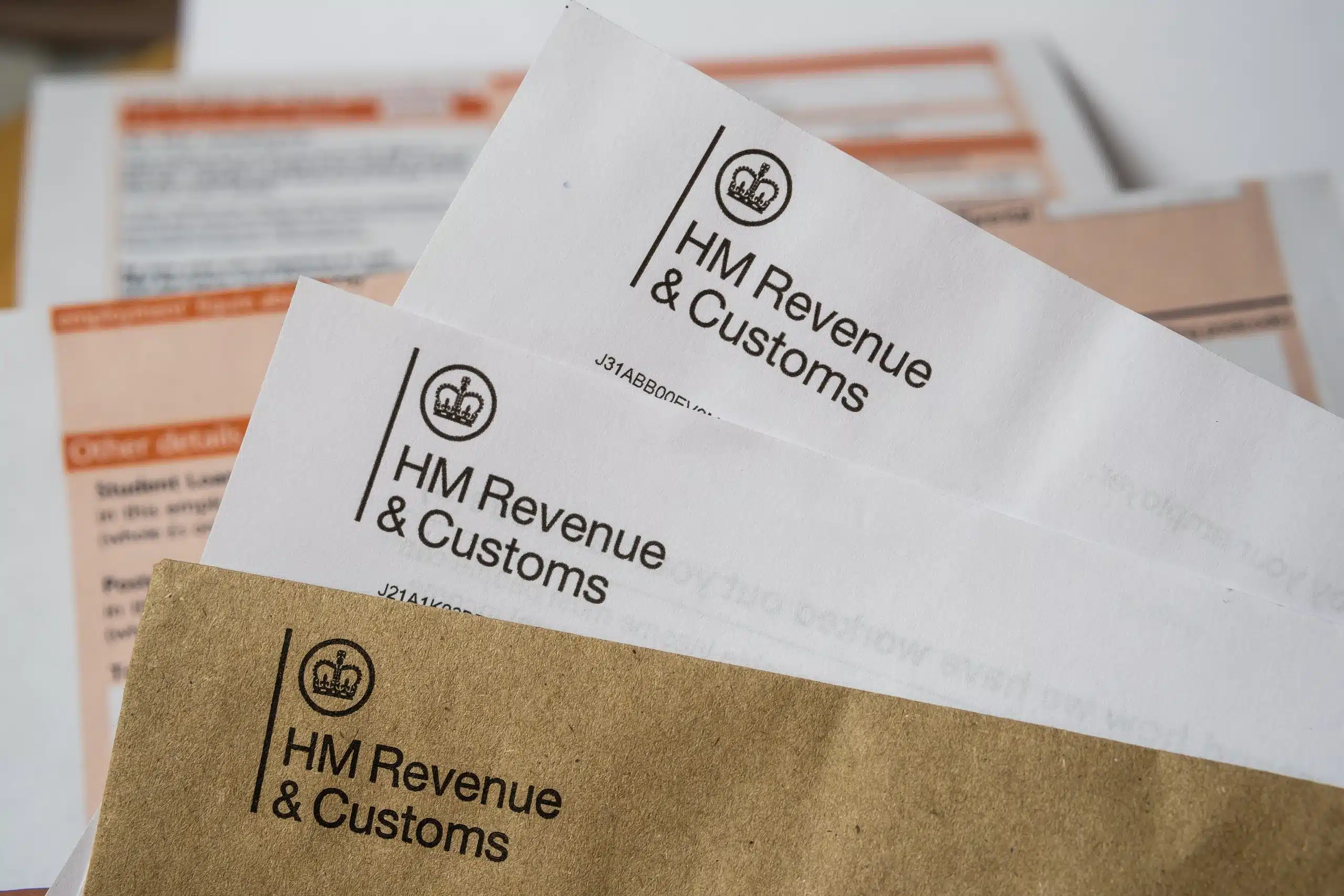Top 10 Mistakes When Filing a Self Assessment Tax Return (And How to Avoid Them!)

Filing your Self Assessment tax return can be a daunting process, especially if you’re managing it on your own. However, minor mistakes can lead to penalties, overpayments, or unnecessary stress.
The good news? With a little preparation, you can avoid these pitfalls and ensure your tax return is accurate and stress-free. Here are the top 10 mistakes people make when filing their Self Assessment and how to avoid them.
1. Missing the Deadline
The most common and costly mistake is missing the deadline for submitting your Self Assessment tax return. For online submissions, this is 31 January following the end of the tax year. Missing it results in an immediate £100 fine, which increases the longer you delay.
How to avoid it:
- Set multiple reminders in the months leading up to the deadline.
- Aim to file your return at least a month early to account for unexpected delays, like technical issues or missing information.
2. Failing to Declare All Income
Many taxpayers forget to include all sources of income on their tax return. This might include:
- Freelance or side gig earnings
- Rental income
- Foreign income
- Investment dividends
Failing to declare all income could result in penalties.
How to avoid it:
- Keep detailed records of all income streams throughout the year.
- Cross-check your bank statements, invoices, and any relevant documents to ensure nothing is missed.
3. Overlooking Allowable Expenses
If you’re self-employed or have business expenses, not claiming all allowable deductions can mean overpaying your tax. Commonly overlooked expenses include:
- Business-related travel
- Office supplies
- Professional services
How to avoid it:
- Maintain a log of all business-related expenses and keep receipts.
- Consult HMRC guidelines or a tax adviser to ensure you’re claiming everything you’re entitled to.
4. Making Calculation Errors
Manual errors in your calculations whether it’s income tax, VAT, or expense deductions can cause underpayments, overpayments, or even trigger an investigation.
How to avoid it:
- Double-check all figures before submitting your return.
- Use reliable tax software or hire a professional to ensure your calculations are accurate.
5. Providing Incorrect Personal Details
It’s surprising how often incorrect personal details like National Insurance numbers or addresses cause delays in processing returns or even rejections.
How to avoid it:
- Carefully review your personal information before submitting.
- Ensure all details match HMRC’s records.
6. Forgetting to Report Capital Gains
Selling assets such as property, shares, or other investments may require you to report capital gains. Many taxpayers forget this step, which can lead to penalties.
How to avoid it:
- Review any asset sales during the tax year and calculate potential capital gains.
- If in doubt, consult a tax adviser for guidance.
7. Not Accounting for Pension Contributions
Pension contributions can reduce your tax liability, but many people either fail to include them or don’t claim the available tax relief.
How to avoid it:
- Include all pension contributions in your Self Assessment.
- Contact your pension provider for accurate figures.
8. Overlooking Charitable Donations
Donations made under the Gift Aid scheme can provide tax relief for higher-rate taxpayers. On the other hand, ticking the Gift Aid box as a non-taxpayer can lead to a tax bill.
How to avoid it:
- Keep records of all charitable donations.
- Only tick the Gift Aid box if you are a taxpayer and can claim the associated relief.
9. Poor Record-Keeping
Disorganised or incomplete financial records are a recipe for missed deductions and errors. Worse still, HMRC requires you to keep records for at least six years.
How to avoid it:
- Use accounting software or a dedicated filing system to organise your financial documents.
- Make it a habit to regularly update your records throughout the year.
10. Failing to Amend Mistakes
Mistakes happen, but many taxpayers don’t realise they can amend their Self Assessment after submission. Leaving errors uncorrected could lead to penalties or even an investigation.
How to avoid it:
- Regularly review your return after submission.
- You can amend your return up to 12 months after the original filing deadline.
Frequently Asked Questions on VAT-Exempt vs Zero-Rated
Q: What happens if I miss the Self Assessment deadline?
A: Missing the deadline incurs an immediate £100 fine, which increases the longer you delay. If you can’t pay on time, contact HMRC to discuss options.
Q: How can I ensure I’m claiming all allowable expenses?
A: Keep thorough records of your expenses throughout the year and consult HMRC guidelines to understand what’s deductible. Professional advice from a tax adviser can also help.
Q: Can I amend my Self Assessment after submission?
A: Yes, you can amend your return within 12 months of the original filing deadline. Log into your HMRC account to make changes or speak with your accountant.
Q: What if I can’t pay my tax bill on time?
A: If you’re unable to pay on time, contact HMRC immediately to arrange a Time to Pay agreement. This allows you to spread your tax bill into manageable instalments. Avoid ignoring the issue, as penalties and interest will accrue.
Q: What income sources should I include in my Self Assessment?
A: You should include all sources of income, such as:
- Employment income not covered by PAYE
- Self-employment earnings
- Rental income from properties
- Foreign income
- Dividends from investments
- Income from freelance work
Q: Can I file my Self Assessment on paper instead of online?
A: Yes, but the deadline for paper submissions is 31 October, earlier than the online deadline of 31 January. Filing online is generally quicker, more secure, and provides immediate confirmation.
Q: How can I check the status of my Self Assessment submission?
A: Log into your HMRC account to check the status of your submission. You’ll see a confirmation if your return has been successfully submitted, along with any outstanding tax liabilities.
Q: Can an accountant help if I’ve already made a mistake on my tax return?
A: Yes, accountants can help amend mistakes in your Self Assessment, even after submission.
They’ll:
- Identify and correct errors.
- Communicate with HMRC on your behalf if necessary.
- Advise on any penalties and how to minimise them.
Q: How can an accountant save me money on my Self Assessment?
A: Accountants can save you money by:
- Identifying allowable expenses and deductions you might miss.
- Advising on tax-efficient practices, such as pension contributions or charitable donations.
- Ensuring accuracy to avoid penalties for errors or omissions.
Q: What are the benefits of working with an accountant year-round instead of just at tax time?
A: Year-round accounting services can help with:
- Proactive tax planning to reduce your liability.
- Monthly or quarterly financial reviews to track income and expenses.
- Ensuring compliance with HMRC regulations year-round, avoiding last-minute surprises.
This approach is especially beneficial for self-employed individuals or business owners.
Q: Can an accountant represent me during an HMRC investigation?
A: Yes, accountants can act on your behalf during an HMRC enquiry or investigation. They will:
- Communicate directly with HMRC to resolve the issue.
- Provide records and explanations as required.
- Offer advice on reducing potential fines or penalties.
Final Thoughts
Filing a Self Assessment tax return doesn’t have to be overwhelming. By avoiding these common mistakes, you can reduce stress, minimise penalties, and even save money. Start early, stay organised, and don’t hesitate to seek professional advice if you’re unsure.
Need assistance? If you’d like expert help with your Self Assessment tax return, reach out to us today. Taking the time to get it right now can save you a world of trouble later.






